On March 17, New York police attacked Occupy Wall Street protesters seeking to re-occupy Liberty Park in Manhattan, leading to 73 arrests. The park was occupied from last September until a violent police raid cleared it in November. In response, OWS protesters occupied Union Square, a public square in Manhattan. It was violently raided by police on March 21. Below is an abridged report from www.occupywallst.org on March 22 on the running battles with police.
* * *
-
-
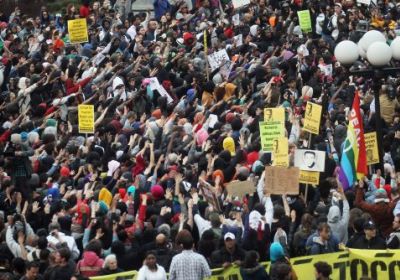 Thousands of people gathered in Union Square in New York City on March 21 for a "Million Hoodie March" to demand justice for Trayvon Martin, as outrage at his racist murder continues to spread across the country and the world. Martin was gunned down in the central Florida town of Sanford in late February as he walked to the home of his father's fiance. His killer was George Zimmerman, a neighborhood watch volunteer who was patrolling a gated community when he spotted Martin.
Thousands of people gathered in Union Square in New York City on March 21 for a "Million Hoodie March" to demand justice for Trayvon Martin, as outrage at his racist murder continues to spread across the country and the world. Martin was gunned down in the central Florida town of Sanford in late February as he walked to the home of his father's fiance. His killer was George Zimmerman, a neighborhood watch volunteer who was patrolling a gated community when he spotted Martin. -
On March 18, Sudan's National Intelligence and Security Services confiscated the entire print run of Al Midan, the Sudanese Communist Party's newspaper. This was the third consecutive issue to be censored by the NISS. The March 18 Sudan Tribune said: "Sudanese authorities routinely confiscate copies of newspapers as a punishment for publishing contents critical of the government. The measure is intended to inflict financial damage on the already hard-pressed papers."
-
Six Zimbabwean socialist activists were convicted on March 19 for “conspiracy to commit public violence”. Their “crime” was to watch a video in February last year about the anti-dictatorship uprising in Egypt. But the activists won a partial victory two days later when they were given suspended jail sentences of two years. The six were also ordered to each do 420 hours of community service and pay a fine of US$500 (A$478). The six had faced up to 10 years’ in jail, a sentence demanded by the state prosecutor, Edmore Nyazamba.
-
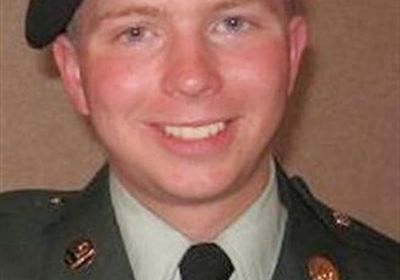 Preliminary court-martial proceedings against United States soldier Bradley Manning have shown the US government's strong desire to make an example of him. Manning is the military analyst accused of leaking hundreds of thousands of secret US diplomatic cables and US military reports from the Iraq and Afghanistan wars to whistleblowing website WikiLeaks. Rather than seek to investigate the serious war crimes revealed in the leaks — and prosecute those responsible — the US government has persecuted Manning.
Preliminary court-martial proceedings against United States soldier Bradley Manning have shown the US government's strong desire to make an example of him. Manning is the military analyst accused of leaking hundreds of thousands of secret US diplomatic cables and US military reports from the Iraq and Afghanistan wars to whistleblowing website WikiLeaks. Rather than seek to investigate the serious war crimes revealed in the leaks — and prosecute those responsible — the US government has persecuted Manning. -
 Last week I had a dream that my house in the western part of Tokyo was shaking violently around me. Then I woke up and discovered it wasn’t a dream at all. It was a 5.3 magnitude earthquake with its epicentre in nearby Saitama. It was the second earthquake I had felt in less than a week following the March 11 anniversary of Japan's earthquake and tsunami disaster. It was a frightening and potent reminder of exactly why it is so important to rid Japan of nuclear power plants.
Last week I had a dream that my house in the western part of Tokyo was shaking violently around me. Then I woke up and discovered it wasn’t a dream at all. It was a 5.3 magnitude earthquake with its epicentre in nearby Saitama. It was the second earthquake I had felt in less than a week following the March 11 anniversary of Japan's earthquake and tsunami disaster. It was a frightening and potent reminder of exactly why it is so important to rid Japan of nuclear power plants. -
At last, the bill has been passed to enable Britain's health service, the envy of the world, to become more like the United States system, universally derided as a chaotic disaster. Now they can introduce bills to make our ferry service more like the one in Italy, and our record on child abuse more like that of the Vatican. It takes inventive thinking to hear that in the US, drug companies spend twice as much on advertising as they do on research, and say, "That's MARVELLOUS, why can't WE do that"?
-
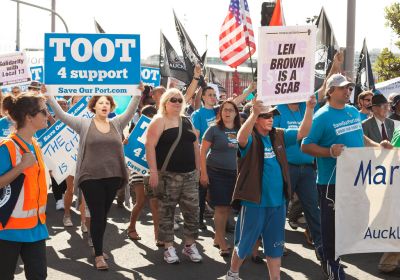 A number of high-profile industrial struggles are unfolding in New Zealand. About 1500 aged care workers, members of the Service and Food Workers Union, are taking part in rolling strikes against a 1% pay rise offer. About 750 meat workers have been locked out by their employer AFFCO and about 1250 workers are involved in rolling stoppages in solidarity. Striking Auckland waterside workers are also into their fourth week on the picket line. What links all these struggles are pay and conditions ― especially the fight against casualisation.
A number of high-profile industrial struggles are unfolding in New Zealand. About 1500 aged care workers, members of the Service and Food Workers Union, are taking part in rolling strikes against a 1% pay rise offer. About 750 meat workers have been locked out by their employer AFFCO and about 1250 workers are involved in rolling stoppages in solidarity. Striking Auckland waterside workers are also into their fourth week on the picket line. What links all these struggles are pay and conditions ― especially the fight against casualisation. -
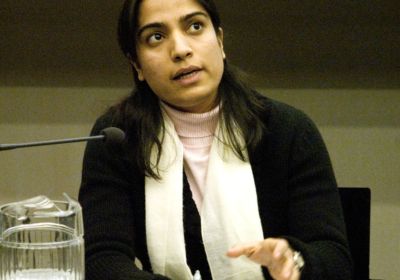 Malalai Joya, a former MP and one of Afghanistan’s best-known democratic leaders, recently survived the sixth attempt on her life. Taliban gunmen attacked her office at 3 am on March 10, wounding two of her guards. In an exclusive interview, she told Green Left Weekly’s Pip Hinman that “such terrorist acts will never stop my fight for freedom, democracy and justice”.
Malalai Joya, a former MP and one of Afghanistan’s best-known democratic leaders, recently survived the sixth attempt on her life. Taliban gunmen attacked her office at 3 am on March 10, wounding two of her guards. In an exclusive interview, she told Green Left Weekly’s Pip Hinman that “such terrorist acts will never stop my fight for freedom, democracy and justice”. -
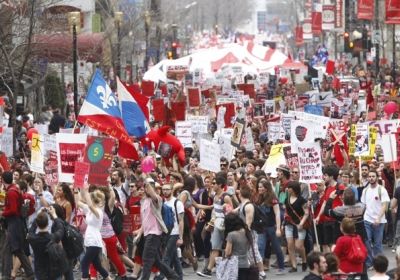 Tens of thousands of students and their supporters marched in big Quebec cities on March 18 to oppose the Quebec Premier Jean Charest’s government’s promise to impose a 75% rise in post-secondary education fees over the next five years. In Montreal, about 30,000 “former, present and future university students” protested. The march stretched for more than 1.5 kilometres, newspaper Le Devoir said. Thousands more marched in Quebec City, Sherbrooke and Alma.
Tens of thousands of students and their supporters marched in big Quebec cities on March 18 to oppose the Quebec Premier Jean Charest’s government’s promise to impose a 75% rise in post-secondary education fees over the next five years. In Montreal, about 30,000 “former, present and future university students” protested. The march stretched for more than 1.5 kilometres, newspaper Le Devoir said. Thousands more marched in Quebec City, Sherbrooke and Alma. -
The massacre of 16 people in the Panjwai District of Kandahar province in Afghanistan on March 11 re-ignited widespread calls, inside and outside Afghanistan, for Western forces to leave. US army spin has not quelled anger or questions over how the massacre took place, who was involved and how to deal with those responsible. Witnesses say US army staff sergeant Robert Bales, along with 15-20 others, went on a rampage — sexually assaulting, then massacring and burning mainly women and children from the remote farming villages of Najeeban and Alkozai.
-
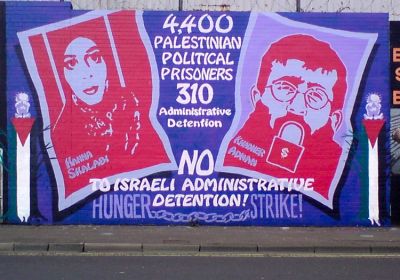 Hana Shalabi, a 30-year-old Palestinian woman, was close to death after being on hunger strike since February 16, Physicians for Human Rights-Israel and Palestinian prisoner rights group Adameer said in a March 20 statement.
Hana Shalabi, a 30-year-old Palestinian woman, was close to death after being on hunger strike since February 16, Physicians for Human Rights-Israel and Palestinian prisoner rights group Adameer said in a March 20 statement.